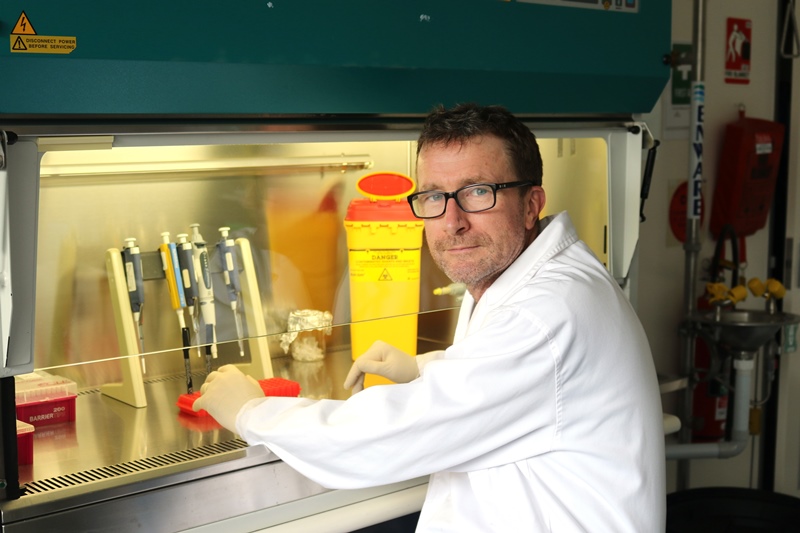Marcus Butler
24 November 2016: A genetic laboratory at the University of Canberra, where police will be able to test the ancestry of DNA found at crime scenes, is now a step closer thanks to a funding boost from AMP’s Tomorrow Fund.
Lead researcher and associate professor of forensic genetics at the University of Canberra Dr Dennis McNevin will use the grant worth $60,000 to help prepare his DNA ancestry laboratory to begin handling samples from police beginning mid-2017.
Dr McNevin said he was excited to receive these funds towards the project (includes video).
“This grant will help us get the Genetic Ancestry Laboratory Project off the ground so we can help police identify the ancestry of suspects. We also hope to add other traits in the near future such as their eye, hair and skin colour.
“Normally DNA is used to identify a suspect, and requires a sample from the scene of a crime which is matched to a known suspect,” Dr McNevin said.
“Our laboratory will be able to assist police to narrow down their search when they have no suspects, or a long list of suspects.
“My team and I are excited to be able to continue to add to our list of identifying features which we can draw from tiny DNA samples, such as whether someone’s hair is curly, wavy or straight, or fingerprint patterns,” he said.
The funds, announced in Sydney as part of AMP’s Tomorrow Makers for 2016, mean Dr McNevin can begin creating standard operating procedures, and quality management and evidence handling procedures to ensure his team meet the rigorous requirements of the police and the judicial system.
“The phenotyping (what a person looks like) test requires procedures to ensure the integrity of sample handling and analysis, and very strong chain of custody provisions,” he said.
“Police investigations depend on samples not being confused and being able to account for their possession from the point of submission to their destruction. It’s no good to be able to provide this incredible tool for police, only to have it unusable because of poor procedural planning.”
Dr McNevin has previously received $200,000 in Australian Research Council Linkage project funding to develop technology which his laboratory will use in DNA analysis, and a further $75,000 in seed funding from the Discovery Translation Fund 2.0 for the project.
Dr McNevin was one of 53 Australian recipients of the AMP Tomorrow Fund, which offered a pool of grants worth $1 million ranging from $5,000 to $100,000 for projects that will benefit the community.



